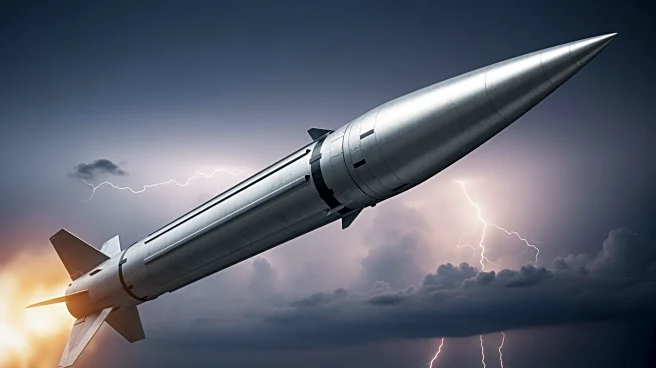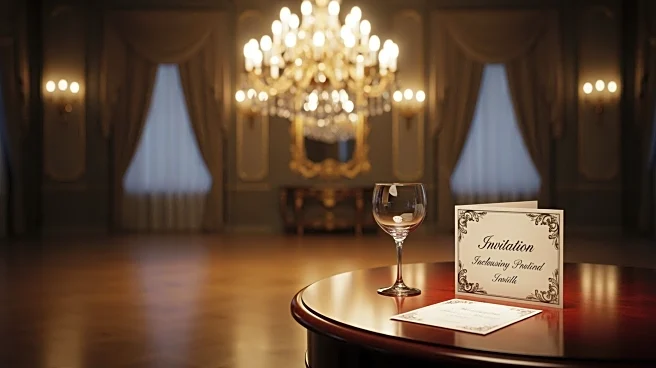What's Happening?
Russian Foreign Minister Sergey Lavrov announced that the Kremlin is developing proposals for nuclear weapons testing, following President Trump's recent statement about restarting U.S. atomic tests. This
marks a significant shift in nuclear policy, as the U.S. has not conducted nuclear tests since 1992. Lavrov stated that Russia is responding to Trump's directive to ensure parity with other countries' testing programs. The Kremlin's move comes amid heightened tensions and could signal a new era of nuclear arms development.
Why It's Important?
The potential resumption of nuclear testing by major powers like the U.S. and Russia could have profound implications for global security and arms control agreements. It may lead to an arms race, with other countries possibly following suit. This development could strain international relations and undermine decades of efforts to limit nuclear proliferation. The environmental and health impacts of nuclear testing are also significant, raising concerns among global stakeholders.
What's Next?
The international community is likely to react strongly to these developments, with calls for diplomatic engagement to prevent a new arms race. Countries with existing nuclear capabilities may reassess their own testing policies, potentially leading to increased global tensions. The U.S. and Russia may face pressure from allies and international organizations to clarify their intentions and commit to non-proliferation efforts. The situation will require careful monitoring and strategic diplomacy to avoid escalation.
Beyond the Headlines
The resumption of nuclear testing raises ethical and environmental concerns, as the impacts of such tests can be devastating. The move challenges existing norms and treaties aimed at preventing nuclear proliferation, highlighting the need for renewed international dialogue and cooperation. It also underscores the importance of scientific research in understanding the long-term consequences of nuclear activities.








